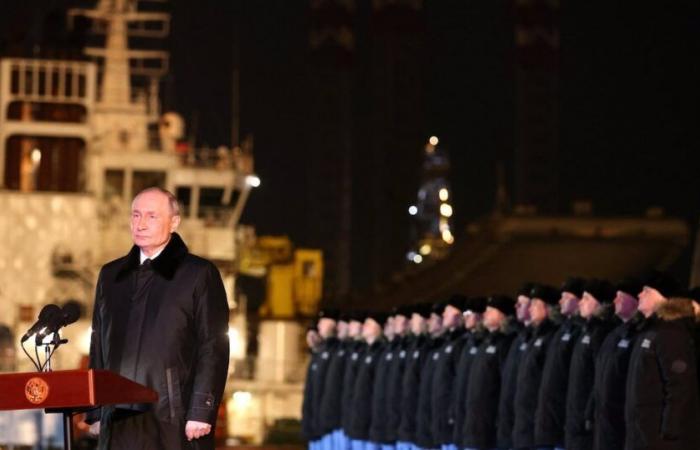The European Commission has presented its strategy on Tuesday to completely disconnect from Russian gas imports in 2027, which will start at the end of 2025 with the prohibition of all existing cash sales contracts both by gas pipeline and liquefied natural gas (LNG).
The European Commissioner for Energy and Housing, Dan Jorgensen, has been in charge of presenting this plan that the president of the European Commission, Ursula von der Leyen, had promised for its first 100 days of mandate but that had already been delayed several times.
According to the Community Executive, this measure will guarantee that, at the end of this year, the EU reduces in a third the remaining supply of Russian gas, a percentage that had already fallen from 45% in 2022 to 19%.
In addition, with the sanctions the twenty -seven have prohibited all imports of Russian coal and oils have been reduced from 27% to early 2022 to current 3%, while in the nuclear sector, the member states that continue to use Russian design reactors have advanced in the replacement of Russian nuclear fuel by that of other producers.
However, Brussels warns that, despite this reduction, energy exports to the EU represent a source of income for Russia and can be used to “sponsor their brutal war actions.”
-In fact, Jorgesen himself has already admitted that EU Russian gas purchases since 2022 are equivalent to the price of 2,400 new F-35 fighters for the Kremlin, a figure that is equivalent to granting Russia sufficient funds to renew its fleet of combat planes with the latest generation model of the American manufacturer Lockheed Martin.
Thus, together with the prohibition of Russian gas imports, the Commission also includes restrictions on new supply contracts confirmed by the Eureatom Supply Agency (ASE) of Uranium and other nuclear materials from Russia.
With regard to oil, the strategy establishes new measures to deal with the ghost fleet through which Russia eludes sanctions and the international limit of oil prices.
The Commission will also intensify its diplomatic efforts and cooperation with the international maritime organization and start working in maritime missions within the framework of the EU Common Security and Defense Policy.
On the other hand, it will ask the member states to develop national plans for the progressive elimination of Russian gas throughout the EU, nuclear and the Russian oil in concrete deadlines that will allow the national specificities and the diversification needs of each country to take into account so that the progressive withdrawal occurs in a coordinated manner.






